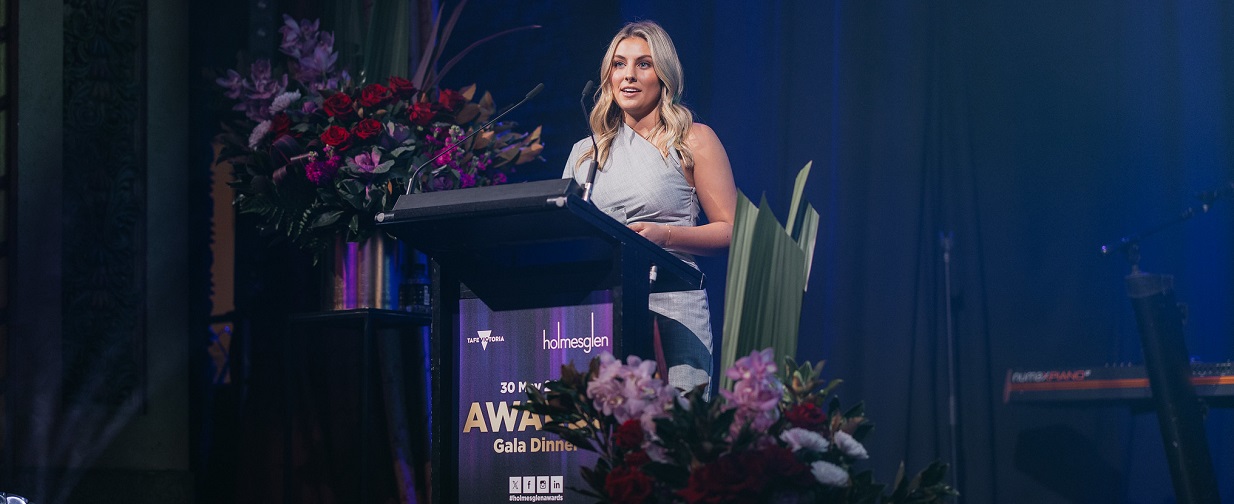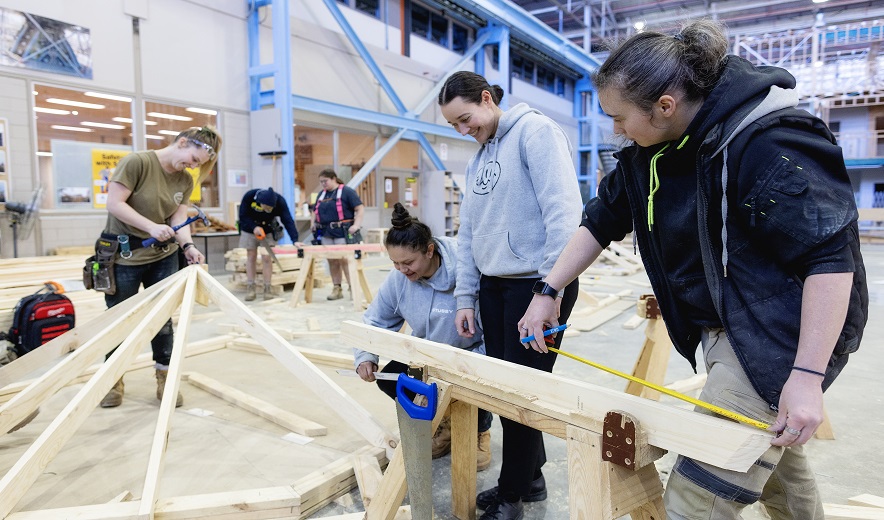Holmesglen’s Building and Construction Department has introduced a cutting-edge timber finger jointing machine, a step forward in sustainable trades education.
This high-tech machine minimises timber waste by repurposing offcuts into usable materials. For apprentices, there are two key benefits: they gain hands-on experience with high-quality timber that replicates real-world conditions, and they learn the value of sustainable craftsmanship.
The Plumbing Department recently introduced a new Smart House, which is a compact model house structure with modern and sustainable plumbing systems. It allows students to practise sustainable plumbing, monitor energy efficiency in real time, and understand how multiple systems integrate as part of a home build or fit out.
Through teaching students to reduce waste and adopt eco-friendly practices, we ensure future tradespeople are equipped to lead the industry in adopting more environmentally sustainable construction methods and innovating in their chosen fields.




